Get started quickly, see results immediately, no code needed.
4 Monday Templates To Help You Unlock Corporate Productivity
Monday Templates can be your savior in the corporate chaos. Struggling for time? Always repeating the same tasks?
I totally get it.
Juggling your own tasks while steering a team feels like an uphill battle. Who asked for added complications and migraines, right?
I’ve got your back, and I’m on a mission to free you from the shackles of manual data entry, miscommunications, and those dreaded missed deadlines.
Now, I can sense your skepticism. “Can Monday Templates genuinely be the solution?”
Absolutely, with the right workflow software!
The only catch? You need to invest a bit of time in understanding and research.
But hey, that’s why I’m here. To guide you through.
Let’s dive in!
Monday templates
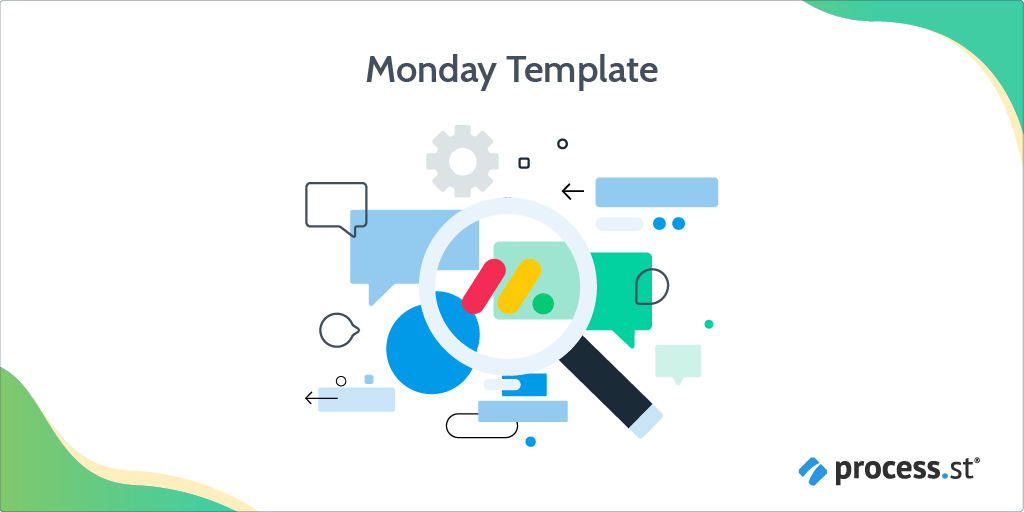
Monday is a popular project management tool. It allows you to create customized workflows to streamline your work processes and communicate with your team.
Let’s look at some customizable templates you’ll encounter on the platform.
Project management Monday template
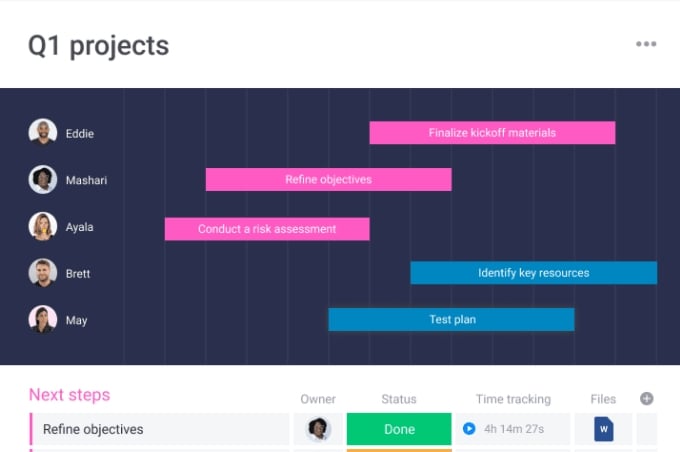
Create powerful boards like the one above for each project that may include columns for:
- Tasks
- Deadlines
- Status updates
- Team members
You can also assign tasks to team members, set deadlines, and track progress in real-time.
This template is perfect for creating complex projects for the entire team!
Sales pipeline Monday template
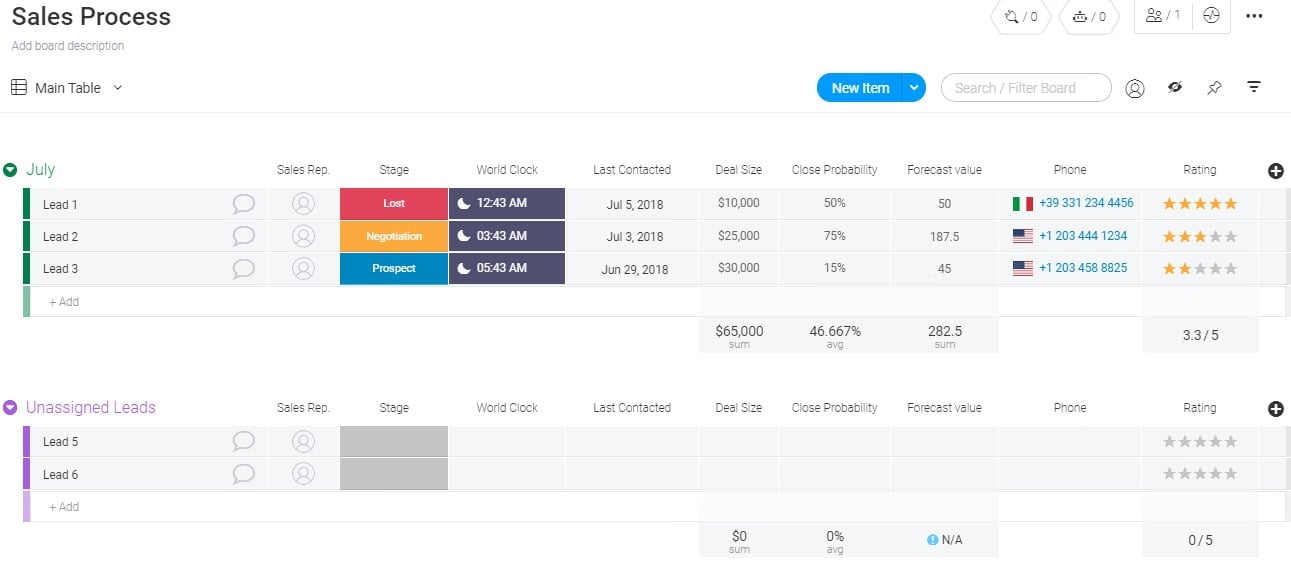
With this workflow, you can create a board to track your sales pipeline, with columns for leads, prospects, opportunities, and closed deals.
Use automations to trigger actions like sending follow-up emails or scheduling meetings. You can also use Monday’s reporting features to analyze your sales performance and identify areas for improvement.
HR Monday template
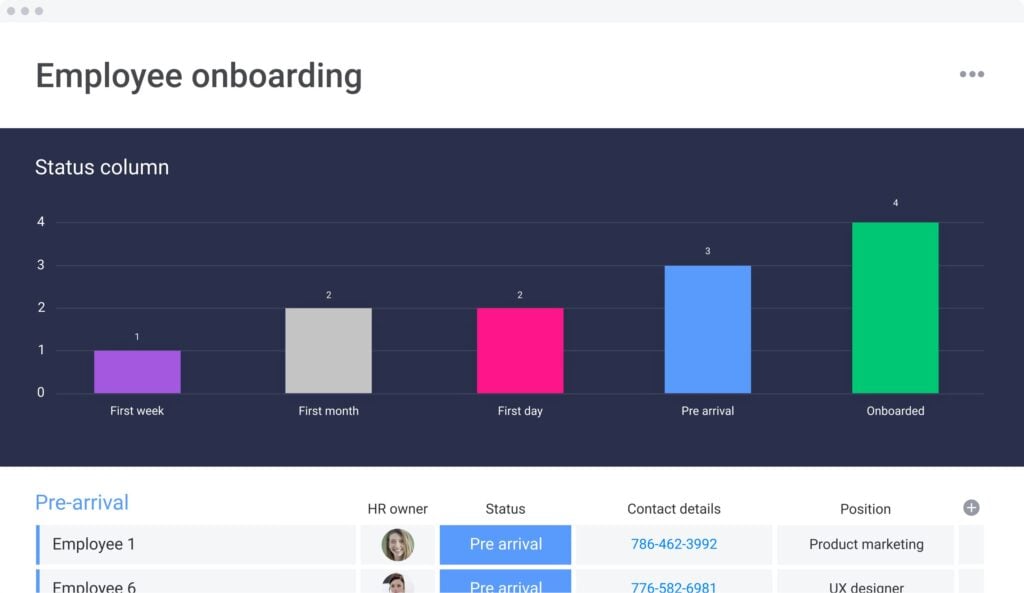
Create a board to manage your HR processes, such as:
- Recruiting
- Onboarding
- Employee data management
- Performance reviews
Use custom fields to track important information like job titles, salary, and performance metrics.
Marketing Monday template
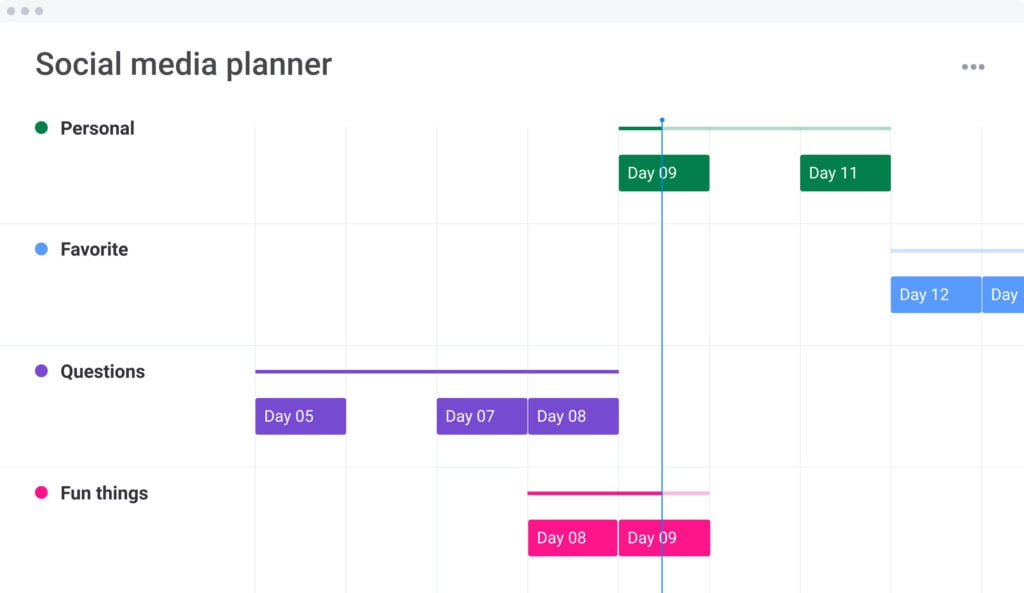
If you want to plan campaigns or a product marketing launch, this template is for you!
With it, you can design a board to manage your marketing campaigns, deadlines, and team members.
Work with integrations like Google Analytics and Hubspot to track performance metrics and measure ROI.
You can also take advantage of dashboards to visualize your data and make informed decisions.
What is a workflow?
Let’s start with the basics.
A workflow platform is an essential tool for planning and executing tasks, making you more organized.
Workflows use a sequence of steps or processes required to complete a particular task or project.
They are, essentially, a visual representation of the steps involved in completing a task, including the inputs, outputs, and the order in which the steps are executed.
You can use workflows in various industries, such as:
- Business
- Healthcare
- Software development
- Finance
- Education
- Customer service
- And more!
Use them to optimize and standardize processes, improve efficiency, and ensure that tasks are completed promptly and effectively.
Workflows can also be automated using various tools and software, making it easier to manage and track the progress of tasks.
What are automations?
In simple terms, automations are pre-configured workflows that can automatically perform tasks in response to specific triggers.
They are designed to eliminate the need for manual intervention and reduce the risk of errors.
Most industries will benefit from automations.
For example, you could set up an automation that emails customers when they purchase your product.
You could even automate posting new content to your social media channels.
Automations can be triggered by various events or conditions, such as a new data entry, a specific date or time, a change in status, or an incoming email.
You can set them up with other software and platforms like Zapier and Integromat, which provide pre-built templates and options to suit your needs.
Automations are a powerful tool for automating routine tasks, improving productivity, and reducing errors in various workflows and processes.
They’ll allow you to focus on more important tasks and maximize your time and resources.
If you’d like a more in-depth guide to workflows, download our free Ultimate Guide to Business Process Automation.
Why do you need automations?
If you’re still not convinced that workflow automations are right for you, let me reassure you that they are!
Why? Here are 5 good reasons:
- They streamline repetitive tasks such as data entry and updating spreadsheets.
- Automations improve the accuracy and consistency of work.
- By automating routine tasks, employees can work more efficiently and effectively.
- You can use automations to enforce compliance with regulations and policies.
- Automations are essential for improving efficiency, reducing errors, and saving time
As you can see, automations are important. But they truly are very effective, too.
Do you need workflows and automations?

If you’re tired of repetitive tasks, constant errors, and wasted time, the answer is yes.
Workflows and automations work in tandem to bring your company to a state of efficiency. They bring a new meaning to the word “teamwork,” and they most certainly won’t disappoint!
Just make sure to choose the right workflow tool, or you’ll run the risk of creating more expenses than necessary.







 Workflows
Workflows Projects
Projects Data Sets
Data Sets Forms
Forms Pages
Pages Automations
Automations Analytics
Analytics Apps
Apps Integrations
Integrations
 Property management
Property management
 Human resources
Human resources
 Customer management
Customer management
 Information technology
Information technology


